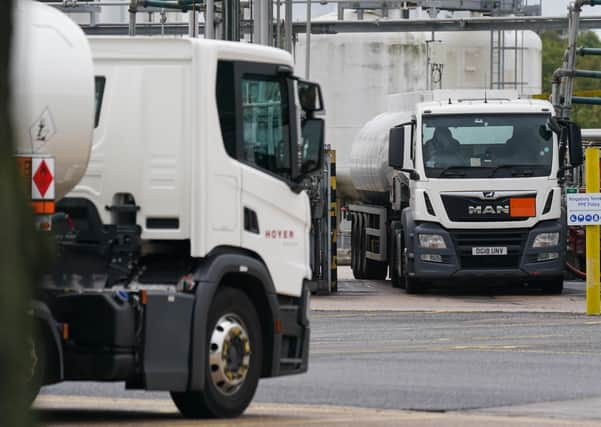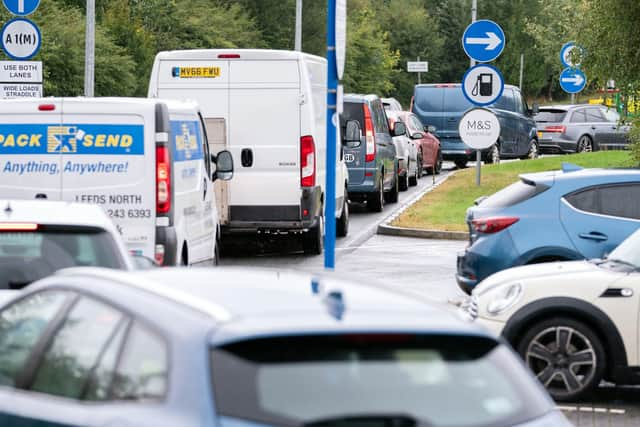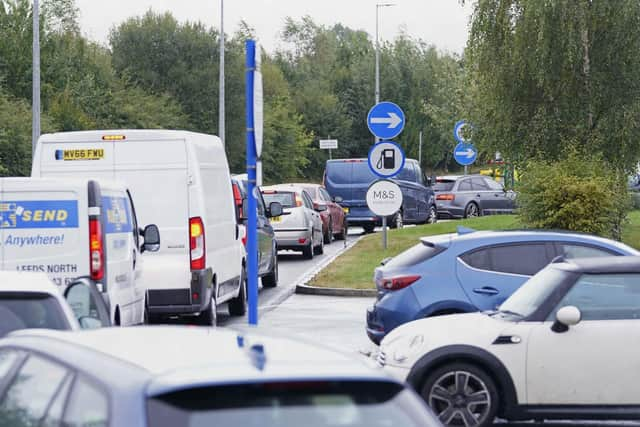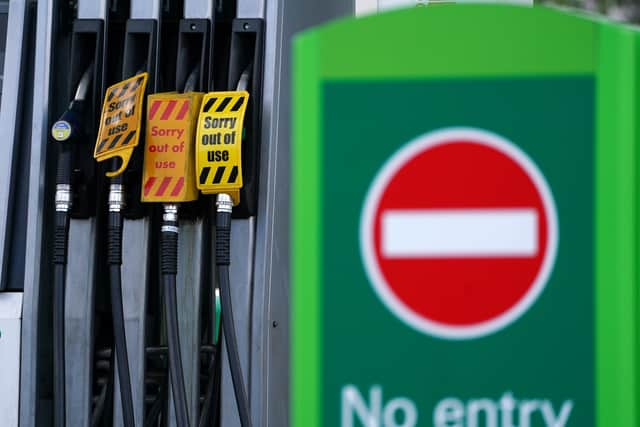What fuel crisis and HGV driver shortage means for skills – Jayne Dowle


I’ll never forget him turning up at the wheel to see me. A little boy who had been obsessed with vehicles since he could walk suddenly in charge of a towering articulated truck. There was a tear in my eye, I’ll admit.
A year or so later, he’d had enough of the punishing working conditions and bade a sad farewell to the road. Still in his 20s, Charlie now trains other people to drive HGVs.
Advertisement
Hide AdAdvertisement
Hide Ad

Perhaps the Government would like him as a poster boy? He’s proof that young people are interested in driving as a career, and clearly his skills and expertise have never been in more demand.
There is an estimated shortage of 100,000 heavy goods vehicle (HGV) drivers in the UK, which is leading to queues at the pumps for petrol and diesel and gaps on supermarket shelves.
The human cost is mounting; nurses can’t get to their shifts and vulnerable people are left alone in their homes because carers are stranded.
Advertisement
Hide AdAdvertisement
Hide AdThe rate of recruitment has not kept pace with the rate of retirement – now the Government is sending out a million letters to retirees holding an HGV licence, to try and persuade them to come back.


In addition, it is estimated that up to 20,000 overseas drivers have left to return to their home countries in Europe due to Brexit, the pandemic and changes to tax and employment terms.
And around 40,000 HGV driver tests were cancelled during the pandemic. The DVLA, beset by strikes and working from home, has some catching up to do.
It’s all very well Ministers promising a package of measures to entice up to 4,000 would-be HGV drivers to take advantage of rapid training courses in order to help ease the supply chain issues blighting fuel and food deliveries, but it’s not just about getting behind the wheel.
Advertisement
Hide AdAdvertisement
Hide AdIt’s about the dire conditions at roadside truck stops, the constant potential for danger, including traffic accidents and armed theft from your vehicle, and fears over automation.


Charlie is a third-generation trucker – his grandfather learned to drive during National Service then spent his working life as a ‘tramper’, spending days at a time away from home, and his dad is director of a haulage firm – and he’s proud to still be a part of an industry that’s in his blood.
However, it’s an industry experiencing a tumultuous present and an uncertain future; it is reported that more than a dozen companies around the world are working on developing computer-driven autonomous trucking, in which a variety of sensors feed data to a computer that controls the vehicle, meaning the driver becomes entirely obsolete.
Unless you work for a company which will put you through the training, it costs about £5,000 and takes six to nine months to qualify, assuming drivers have a basic vehicle licence already. Only 56 per cent of learners pass their test first time. Out of the estimated 3,000 HGV driving tests carried out each week, only 1,500 new drivers are entering the market.
Advertisement
Hide AdAdvertisement
Hide AdThere is no better evidence than this dangerous shortfall to support the national skills audit this newspaper is calling for. Without professional drivers, we’re going nowhere fast. Yet driving for a living is often looked down upon as a second-class career, even when demand is sending wages up to £40,000 or £50,000 a year and comparable to the salary of a senior teacher.
For too long now politicians have shied away from a debate that encompasses education, training and the labour market, with a serious dose of good old British snobbery thrown in.
Whilst all the attention has been on encouraging young people to go to university, serious skills shortages have taken deep root. It’s not just in driving and logistics, but across the construction industry, agriculture, the care sector, retail, hospitality and catering.
Government after government – including Labour – has regarded these essential industries with disdain, distrust, suspicion even. The current government can talk all they like about apprenticeships, but there aren’t nearly enough vocational opportunities available to provide enough places for every young person who wants one.
Advertisement
Hide AdAdvertisement
Hide AdThere is nothing shameful about jobs which demand physical strength, practical abilities and people skills.
What is shameful, however, is that they have been consistently relegated to second-class status, which is one obvious reason why we don’t have enough professional drivers, or bricklayers or plumbers or people properly qualified to look after our most vulnerable members of society.
Never mind throwing money at headline-grabbing knee-jerk ‘packages’. If the Government is serious about addressing the skills shortage, it needs to start by making a list.
Support The Yorkshire Post and become a subscriber today. Your subscription will help us to continue to bring quality news to the people of Yorkshire. In return, you’ll see fewer ads on site, get free access to our app, receive exclusive members-only offers and access to all premium content and columns. Click here to subscribe.
Comment Guidelines
National World encourages reader discussion on our stories. User feedback, insights and back-and-forth exchanges add a rich layer of context to reporting. Please review our Community Guidelines before commenting.